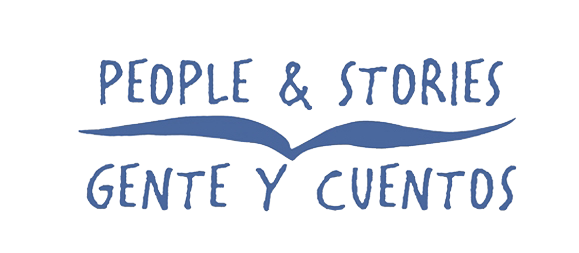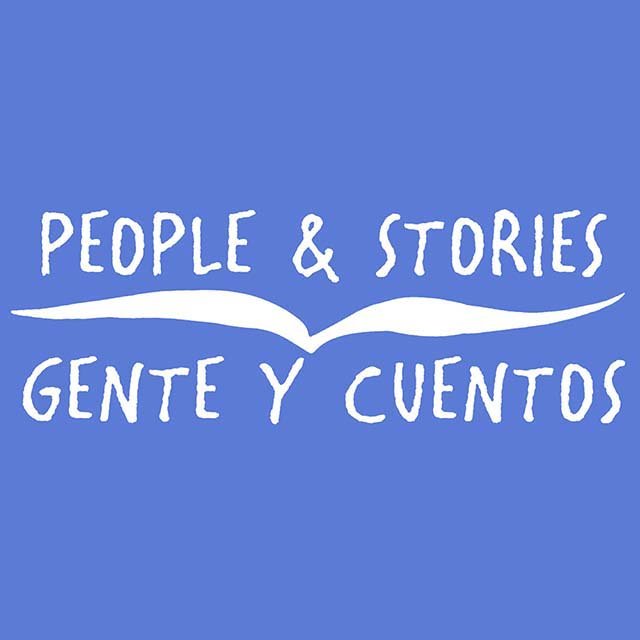Program Outcomes
For People & Stories/Gente y Cuentos, impact is measured by participants' development in four domains: literacy, personal, intersubjective, and intellectual.
Our evaluation system addresses both the impact we wish to have and the method for achieving that impact. We recently partnered with Harvard University's Humanities and Liberal Arts Assessment (HULA) research team, led by Dr. Danielle Allen, Dr. Maggie Schein, and Dr. David Kidd to revise our assessment tools, gather and interpret data from our participant surveys, and hone best practices -- all as part of their study of the outcomes of humanities education. In the words of the HULA team, the study served in "illuminating the craft knowledge of the goals of the humanities in relation to the methods and mechanisms by which those goals can be achieved." People & Stories was one of five programs in the study. The others were the Clemente Course, the Illinois Council for the Humanities, Amherst College, and Harvard University…
-
In late 2016 the domains were modified from "Engagement, Literacy, Self-Esteem, Authentic Voice, Well-Being, Cultural Context, and Critical Thinking" to "Engagement, Literacy, Personal Development, Intersubjective Development, and Intellectual Development." Researchers Dr. Maggie Schein and Dr. David Kidd found that these revised domains were better suited to "assess paths of human development."
Accordingly, the researchers worked with us to revise the questions on the self-reporting survey participants complete when a program concludes. The aim was not only to better gauge factors of growth, but also to determine which aspects of our methodology are connected to growth domains.
The research team completed the first phase of evaluating the new survey's implementation in May of 2017, and provided us with a report of their findings.
In sum, they wrote, "variation in responses was almost entirely at the high end of the scales, suggesting nearly uniformly positive responses to the program." A more finely tuned analysis points to outcomes in "the four primary developmental domains targeted by P&S/GyC: Literacy, Personal, Intersubjective, and Intellectual."
For the team, the data demonstrates above all that "engagement with others strongly predicts advanced literacy development, affirming the importance of the social environment in fostering development." Participant survey results also, though, suggest the key role of the short story in this intersubjective growth; according to the report, "engagement with literature may be especially important because it provides a context for positive interpersonal engagement.
"The data-derived conclusion that social engagement fosters literacy development -- and that engagement with literature can give rise to social interaction -- is in line with our asset-based, sociocultural approach to adult literacy.
The HULA study results have a broad reach, influencing the national conversation about the value of humanities education. The P&S/GyC methodology and its outcomes serve as a foundational case in point of the effectiveness of nonformal delivery of humanities programming.
“The students were more interested in reading as a result of People & Stories… the students would often engage in conversation beyond the session about what was read.”
“Perhaps the most concrete sign of the program’s effectiveness I have seen is that after participating in People & Stories our residents are better able to participate in other parts of our program and they have a higher performance rate than those who did not.”
“The critical thinking strategies that People & Stories teaches has aided in our members passing the reading and writing component of the GED exam.”
“This program is not like their [inmates] regular programming… it gives the residents a means of communicating.”
HULA’s five-year national research project involved five humanities programs, three at public organizations and two at elite universities – People & Stories / Gente y Cuentos, the Clemente Course, the Illinois Humanities Council, Amherst College, and Princeton University.
This major study of humanities outcomes, in Dr. Allen’s words, “formalized the craft knowledge of humanists and the self-understandings of successful students so as to provide clearer answers to the questions of the kinds of impacts on human beings that are achieved by means of a humanistic education.” As a public humanities program, People & Stories/Gente y Cuentos represents an approach to education that, as Dr. Allen recognizes, “does all these more human, more important things.”
For more information about the Humanities and Liberal Arts Assessment project, visit:http://www.pz.harvard.edu/projects/humanities-liberal-arts-assessment-hula

